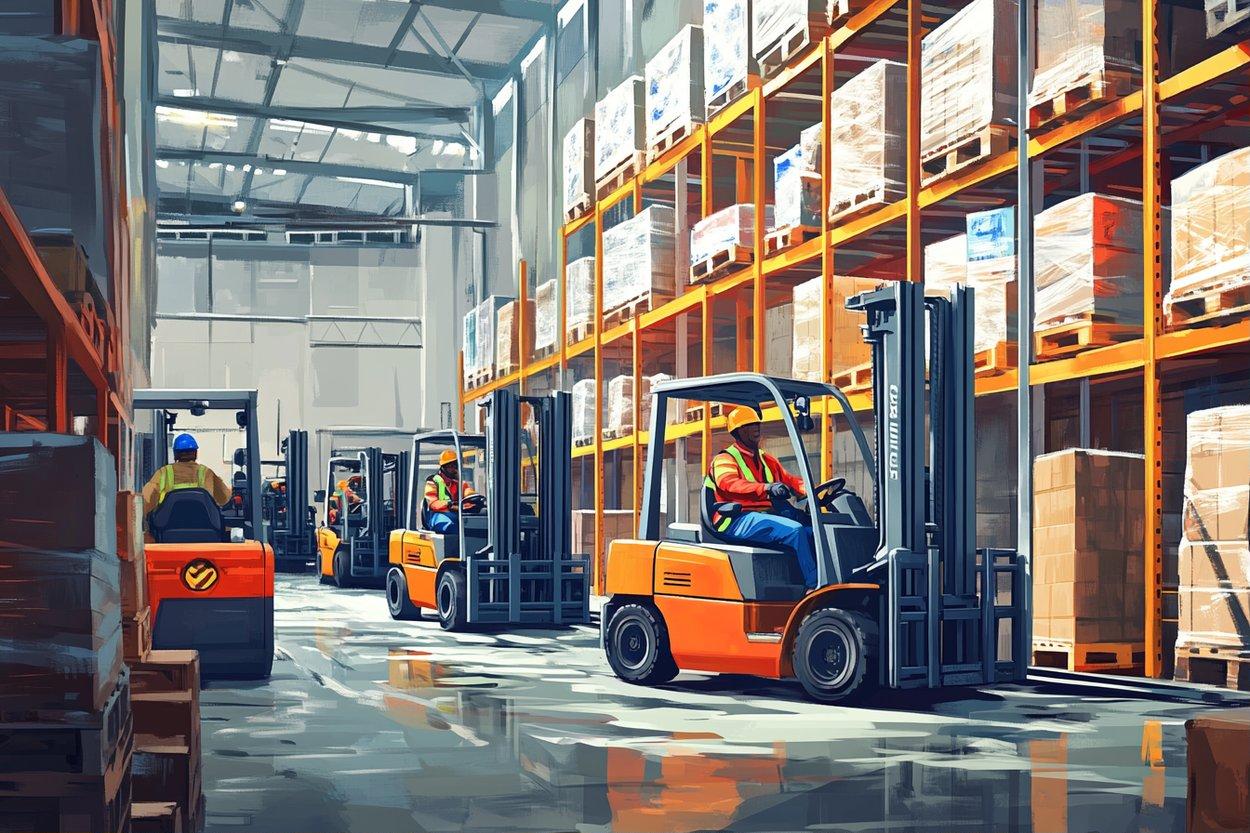Warehouse Services: A Comprehensive Guide to Jobs, Salaries, and Careers in Logistics
Warehouse services form the backbone of modern logistics and supply chain management. These facilities play a crucial role in storing, organizing, and distributing goods for businesses across various industries. As e-commerce continues to grow and global trade expands, the demand for efficient warehouse operations has skyrocketed. This article explores the world of warehouse services, focusing on job opportunities, salary expectations, and potential career paths in this dynamic field.

In today’s fast-paced business environment, effective warehouse management is more important than ever. With the rise of e-commerce and just-in-time inventory practices, warehouses must be agile and responsive to meet changing consumer demands. This has led to the adoption of advanced technologies and sophisticated logistics strategies, creating new opportunities and challenges for professionals in the field.
What types of jobs are available in warehouse services?
The warehouse industry offers a diverse range of job opportunities for individuals with varying skills and experience levels. Entry-level positions such as warehouse associates or material handlers often require minimal qualifications and can serve as stepping stones to more advanced roles. These jobs typically involve tasks like receiving shipments, picking orders, and operating basic equipment.
For those with more experience or specialized skills, positions such as forklift operators, inventory control specialists, and quality assurance inspectors are common. These roles require a deeper understanding of warehouse operations and may involve the use of specialized equipment or software systems.
At the management level, warehouse supervisors, logistics coordinators, and operations managers oversee daily activities, optimize processes, and ensure compliance with safety regulations. These positions often require a combination of hands-on experience and formal education in logistics or supply chain management.
What skills are needed for a successful career in warehouse logistics?
Success in warehouse logistics requires a combination of technical knowledge and soft skills. On the technical side, proficiency in inventory management systems, warehouse management software, and data analysis tools is increasingly important. Familiarity with automated storage and retrieval systems, robotics, and other emerging technologies can also be valuable.
Soft skills such as attention to detail, problem-solving abilities, and teamwork are crucial in this fast-paced environment. Strong communication skills are essential for coordinating with colleagues, suppliers, and customers. Physical stamina and the ability to work in a dynamic, sometimes challenging environment are also important considerations for many warehouse roles.
Additionally, a commitment to safety and a willingness to adapt to new processes and technologies are key attributes for long-term success in the field. As warehouse operations become more complex and data-driven, analytical thinking and continuous learning are increasingly valued skills.
How much can you expect to earn in warehouse and logistics careers?
Salaries in warehouse and logistics careers vary widely depending on factors such as job role, experience level, location, and company size. Entry-level positions such as warehouse associates or pickers typically start at or slightly above minimum wage, with opportunities for advancement and increased earnings over time.
More specialized roles like forklift operators or inventory specialists generally command higher salaries, often ranging from $30,000 to $50,000 per year. Management positions, including warehouse supervisors and logistics managers, can earn significantly more, with salaries ranging from $50,000 to over $100,000 annually for experienced professionals.
| Job Title | Experience Level | Estimated Salary Range |
|---|---|---|
| Warehouse Associate | Entry-level | $25,000 - $35,000 |
| Forklift Operator | Intermediate | $30,000 - $45,000 |
| Inventory Specialist | Intermediate | $35,000 - $55,000 |
| Warehouse Supervisor | Experienced | $45,000 - $70,000 |
| Logistics Manager | Experienced | $60,000 - $100,000+ |
Prices, rates, or cost estimates mentioned in this article are based on the latest available information but may change over time. Independent research is advised before making financial decisions.
It’s important to note that these figures are estimates and can vary significantly based on factors such as geographic location, industry sector, and individual company policies. Many warehouse jobs also offer opportunities for overtime pay, bonuses, and benefits packages, which can substantially increase overall compensation.
What are the career growth opportunities in warehouse services?
The warehouse and logistics industry offers numerous paths for career advancement. Many professionals start in entry-level positions and work their way up to supervisory or management roles. With experience and additional training or education, individuals can specialize in areas such as supply chain management, transportation logistics, or inventory control.
As technology continues to transform the industry, new career paths are emerging in areas such as warehouse automation, data analytics, and logistics technology implementation. These roles often require a combination of technical skills and industry knowledge, providing opportunities for those who are willing to adapt and learn.
For those interested in broader business operations, experience in warehouse management can be a stepping stone to roles in operations management, supply chain strategy, or even executive positions within logistics-focused companies. The skills gained in warehouse services, such as process optimization, team management, and problem-solving, are highly transferable to other areas of business.
In conclusion, warehouse services offer a diverse and dynamic career landscape with opportunities for individuals at all levels of experience and education. As the logistics industry continues to evolve, professionals who combine practical skills with adaptability and a willingness to embrace new technologies will find themselves well-positioned for success in this essential sector of the global economy.






